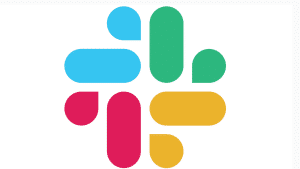
In this fast-paced world of software development, the balance between efficiency and quality is essential. Slow applications and Glitch-ridden can tarnish user experience and disrupt the productivity of your business. However, finding a solution to these problems might take time and effort. And this is where DevOps stands out. By leveraging DevOps platforms and tools, this powerful strategy fuels continuous integration, automation, seamless testing, and infrastructure as code and provides significant results. In this article, we will learn about some of the best DevOps tools for improving your business.
Key Considerations for Choosing DevOps Tools
Here are the top factors to consider while evaluating DevOps tools.
 1. Scalability
1. Scalability
Scalability is vital in making the business grow and generate more yearly revenue. If the company is moving beyond the current technology stack, you often need to integrate new products and software. It increases the time required to train the people and the operational costs.
2. Flexibility
One advantage your business enjoys from adopting the DevOps pipeline is flexibility. With DevOps, you can meet your customers’ various needs and improve your current system performance at the optimal level. Having a DevOps platform will make things more convenient for your business.
3. Automation
Effective automation plays a significant role in improving business efficiency. To understand where the business requires automation, you must thoroughly analyze the current methods and tools and know the areas to be automated.
4. Security
Data security is the most important aspect to consider while selecting a DevOps tool. Data security breaches can lead to serious consequences for your business and the reputation you have built over many years. Use high-quality tools to safeguard the data and ensure hassle-free working.
5. Business Needs
Different businesses have different requirements; identifying and choosing the best DevOps tools that meet your requirements with high efficiency will play a key role in your industry.
List of 6 Best DevOps Tools in 2025
1. Version Systems
 Git
Git
Git was developed to handle major to minor projects faster and more efficiently. It is designed to coordinate the work among developers. Version control allows tracking the work. It is also used as the critical distributed version control for the DevOps tools.
Features
1. It is a free, open-source tool.
2. It allows distributed development.
2. Continuous Integration/Continuous Deployment Tools
 Jenkins
Jenkins
Jenkins is a powerful automation server that enables CI/CD pipelines. It streamlines software development by automating tasks like developing, testing, deploying code changes, and ensuring quick software delivery. The need for efficient CI/CD processes has risen with the growing complexity.
Features
1. Jenkins provides flexibility and extensibility.
2. Jenkins also provides a huge library of plugins designed to support a wide variety of technologies and tools, making it more adaptable to diverse development environments.
3. Configuration Management Tools
 Ansible
Ansible
Ansible automates application deployment, intra-service orchestration, cloud provisioning, and other IT tools. It helps DevOps teams speed up productivity and scale automation.
Features
1. Ansible is user-friendly and easy to use to open source deploy applications.
2. Ansible helps in avoiding difficulties in the software development process and eliminates repetitive tasks.
4. Containerization and Orchestration Tools
 Docker
Docker
Docker allows for the building and running of distributed applications on several systems. It is suitable for container management and helps to assemble applications quickly from components.
Features
1. Docker makes the system faster and more comfortable.
2. Docker also increases productivity.
5. Monitoring and Logging Tools
 Prometheus
Prometheus
Prometheus is also one of the crucial tools in DevOps and observability. It is important due to its necessity of monitoring and alerting solutions and the growing difficulties of comprehensive software systems.
Features
1. Prometheus excels in collecting, analyzing, and storing metrics from different parts of an application’s infrastructure, including microservices, containers, and cloud-based environments.
2. Prometheus provides the visibility needed to maintain application performance and ensure the software system’s reliability.
6. Collaboration and Communication Tools
 Slack
Slack
Slack is an important tool for organizations and businesses around the world. Its importance lies in facilitating seamless collaboration and communication among the teams. Slack’s file sharing, real-time messaging, and integration capabilities streamline the workflow, keep teams connected, and enhance productivity.
Features
1. Slack helps in project coordination, quick decision-making, and knowledge sharing.
2. Slack helps businesses to stay efficient, agile, and competitive.
How to Choose the Suitable DevOps Tools?
 1. Determine Your Needs
1. Determine Your Needs
The first step in choosing the best DevOps tools is determining your needs. What kind of development and operation tasks do you need? Do you need multiple tools or only a single platform? Identifying your specific needs will help you choose the best options and the most suitable tool for your project.
2. Research Available DevOps Tools
Once you have identified what you really need, it’s time to research available DevOps tools. Compare features, read reviews, and consider pricing before choosing the best option.
3. Evaluate Ease of Use
A tool that is complex to use won’t enhance productivity or efficiency, but it could slow them down if users don’t understand how to use it properly. While choosing DevOps tools, be sure to consider ease of use and integration with other existing systems in your organization’s IT environment.
4. Consider security
Security must be your top priority when selecting a DevOps tool. Tools that maintain secrecy and security should be considered before final selection.
Bottom Line
In conclusion, selecting the right DevOps tools is crucial for streamlining workflows, enhancing collaboration, and driving success in modern software development. These six crucial offer a robust suite of capabilities to support key DevOps practices and enable organizations to achieve their goals more efficiently.
With its robust CI/CD capabilities, Jenkins automates the build, test, and deployment processes, accelerating delivery cycles and improving code quality. Git provides a scalable and distributed version control system, enabling seamless collaboration and version management across distributed teams.
Docker revolutionizes containerization and orchestration, empowering organizations to build, deploy, and scale applications quickly and consistently. Ansible simplifies configuration management and automation, enabling teams to manage infrastructure as code and streamline operations.
By carefully evaluating their requirements and considering the strengths and weaknesses of each tool, organizations can choose the best DevOps tools for their unique workflows. With the right tools in place, organizations can unlock DevOps’ full potential, drive innovation, and deliver value to customers faster than ever before.


 Git
Git Jenkins
Jenkins Ansible
Ansible Docker
Docker Prometheus
Prometheus Slack
Slack 1. Determine Your Needs
1. Determine Your Needs

